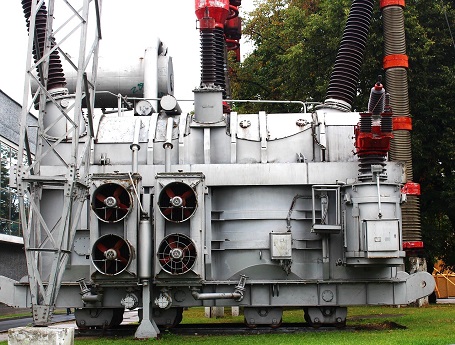Keeping the Lights On: Power Backup Solutions for Modern Homes and Businesses
 Key Takeaways
Key Takeaways
Discover the significance of power backup systems for homes and businesses.
Learn about different types of backup solutions available in the market.
Understand the benefits of investing in a reliable power backup system.
Explore real-life examples and data that highlight the importance of uninterrupted power supply.
Introduction to Power Backup Solutions
Power backup systems ensure essential devices remain operational during power outages, preventing disruptions in residential and commercial settings. These systems are critical in today’s fast-paced world, where technology intertwines with daily life. Unavoidable power interruptions can disrupt routines and productivity, making it essential to maintain a continuous power supply. Reliable power backup systems act as unseen heroes, ensuring the show continues during outages. For instance, Pensacola FL Backup Power Systems provides exemplary service, ensuring that power disruptions do not thwart the rhythm of daily activities in households and businesses alike.
Power backup solutions are crucial in regions prone to frequent outages or natural disasters. Unexpected cuts can disrupt business operations, cause data losses and revenue, and affect essential appliances. Thus, a robust backup power solution is necessary for daily life and business integrity.
Types of Power Backup Solutions
Generators
Generators are often the first line of defense in power backup solutions. They come in various sizes and capabilities, from small portable units designed for mobile needs to large systems capable of powering entire industrial facilities. Generators operate on fuels like diesel, gasoline, or natural gas, making them versatile for various applications. They are ideal for prolonged outages and are widely used in industries where continuous power is critical.
Uninterruptible Power Supplies (UPS)
The uninterruptible power supply (UPS) system protects sensitive electronics such as computers, servers, and telecommunication equipment. These systems provide instant power during an outage, preventing data corruption and hardware damage. While a UPS is typically best suited for short-duration outages, it offers an essential buffer that protects against sudden power loss, allowing for safe system shutdown or transfer to a more robust power solution.
Solar Power Systems
Solar power systems have gained prominence in seeking more sustainable energy solutions. These systems convert sunlight into energy, which can be stored in batteries for later use during power outages. Solar power is especially appealing due to its renewable nature and the decreasing installation and maintenance costs. For homeowners and businesses looking for eco-friendly solutions, solar power provides a viable alternative to traditional backup systems.
Benefits of Reliable Power Backup
Investing in a reliable power backup system yields numerous benefits. Essential equipment like air conditioners, refrigerators, and security systems must run constantly in homes. In a business context, it ensures continuity, preventing costly operational downtime and safeguarding revenue streams. Moreover, these systems offer peace of mind, reducing the stress associated with anticipating and dealing with power outages.
Case Studies on Effective Power Backup Systems
Real-world scenarios underscore the value of effective power backup systems. Consider a retail store that depends on electronic payment systems. During a recent severe storm, the store’s generator maintained power, allowing the business to operate without interruption and preserve crucial sales. Similarly, a family in a rural area invested in a solar backup system, which preserved their perishable goods during an unexpected outage, showcasing the practicality and efficiency of these systems.
Key Components of a Power Backup System
A power backup system comprises several key components, each critical in maintaining power consistency. Batteries store electricity and are ready to deploy when the main supply fails. Inverters convert stored energy into usable power compatible with household or business circuits. Transfer switches seamlessly transfer the load from the primary energy source to the backup system, ensuring no power flow interruption. Together, these components create a robust defense against power interruptions.
Investing in Sustainable Energy Solutions
With increasing awareness of environmental impacts, investment in sustainable energy solutions is becoming more prevalent. As power backup systems incorporate renewable energy sources like solar and wind, our idea of energy resilience is evolving. Adopting these green energy trends shows a shift towards reducing carbon footprints while offering long-term economic benefits. The growth of these practices demonstrates a proactive approach to safeguarding energy needs and contributing to environmental conservation.
FAQs About Power Backup Solutions
Questions commonly arise about power backup systems. How long do they last? Most systems are designed to last several years, although components like batteries typically require replacement every three to five years. Is maintenance needed? Regular checks ensure that elements such as generators remain operational; this includes fuel checks, lubrication of moving parts, and electrical testing. Choosing the right system depends on various factors, including budget, power needs, and the frequency of power interruptions experienced in the particular region.
Conclusion: Ensuring Uninterrupted Power Supply
Integrating a power backup solution is an investment in security and continuity. More than just keeping the lights on, these systems preserve lifestyle standards and business operations. In a world where power needs are ever-increasing and disruptions can have considerable impacts, taking proactive steps to incorporate reliable backup solutions translates to peace of mind and enhanced resilience against unforeseen power disruptions.